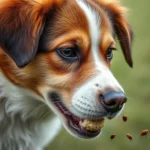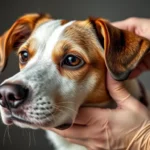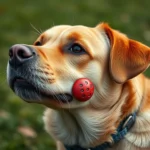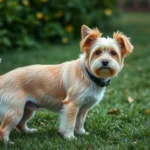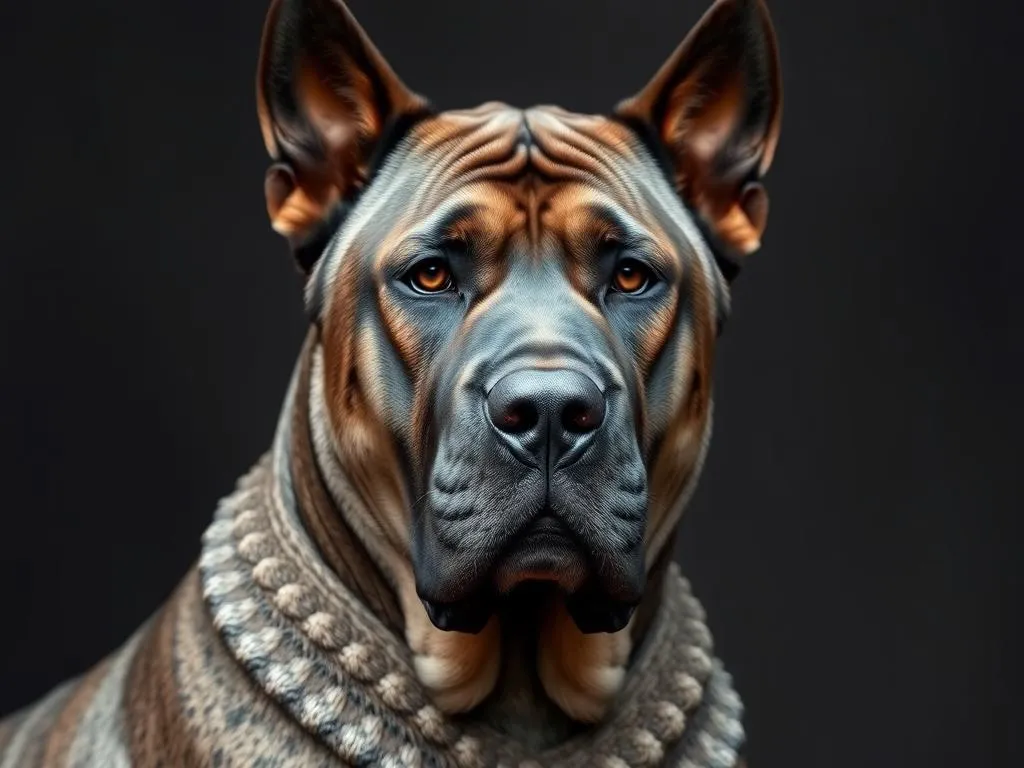
Introduction
Dog health care is essential for ensuring a long, happy, and fulfilling life for our beloved pets. Among the various breeds, Cane Corsos stand out not only for their impressive size and strength but also for their loyalty and intelligence. This article aims to provide valuable insights into Cane Corso health care, addressing common health concerns and offering guidance on how to keep these majestic dogs healthy and thriving. One of the first questions prospective owners often ask is, how big are Cane Corsos? Understanding their size and health needs is vital for responsible ownership.
Understanding Cane Corsos
Breed Characteristics
The Cane Corso is a large and powerful breed, characterized by its muscular build and imposing stature. Males typically weigh between 110 to 150 pounds, while females weigh between 80 to 110 pounds. In terms of height, males generally range from 26 to 28 inches at the shoulder, and females stand between 24 to 26 inches. Their coats are short and can come in a variety of colors, including black, fawn, and brindle.
Aside from their physical traits, Cane Corsos are known for their temperament. They are protective, loyal, and intelligent, making them excellent family companions. However, they require consistent training and socialization to ensure balanced behavior.
Historical Background
The Cane Corso has a rich history that dates back to ancient Rome, where they were primarily used as guard dogs and working dogs on farms. Their name is derived from the Latin word “Cohors,” which means protector or guardian. Throughout history, these dogs have been valued for their strength and loyalty, often used in hunting large game and protecting property.
Size and Growth of Cane Corsos
How Big Are Cane Corsos?
As mentioned earlier, the size of Cane Corsos can be quite impressive. On average, males weigh between 110 to 150 pounds, while females range from 80 to 110 pounds. Their height also varies, with males measuring 26 to 28 inches and females standing 24 to 26 inches tall. It’s important to note that individual size can vary based on genetics and overall health.
Factors Affecting Size
Several factors contribute to the size of a Cane Corso, including:
- Genetics and Breeding Practices: Quality breeding can significantly influence the size and health of the dog. Responsible breeders prioritize health and temperament in their breeding programs.
- Nutrition and Its Role in Growth: Proper nutrition during the puppy stage is crucial for healthy growth. A balanced diet rich in protein, fats, and carbohydrates will support their development.
Common Health Issues in Cane Corsos
Genetic Predispositions
Like many purebred dogs, Cane Corsos can be prone to certain genetic health issues. Some common conditions include:
- Hip Dysplasia: This is a hereditary condition where the hip joint doesn’t fit properly into the hip socket, leading to arthritis and pain.
- Heart Issues: Certain heart conditions, such as dilated cardiomyopathy, are more prevalent in this breed.
Understanding these predispositions can help owners take proactive measures to maintain their dog’s health.
Preventative Care
Regular veterinary check-ups are essential for early detection and treatment of health issues. Owners should also adhere to vaccination schedules to protect against common canine diseases. Preventative care can significantly enhance a Cane Corso’s quality of life.
Nutrition and Diet
Nutritional Needs of Cane Corsos
To ensure optimal health, Cane Corsos require a well-balanced diet tailored to their size and activity level. Key dietary requirements include:
- Protein: Essential for muscle development, a high-quality protein source should be the primary ingredient in their food.
- Carbohydrates: Whole grains and vegetables can provide the necessary energy for these active dogs.
- Fats: Healthy fats are crucial for skin and coat health, as well as overall energy levels.
Common Dietary Issues
Obesity is a significant concern for Cane Corsos due to their large size and potential for a sedentary lifestyle. To prevent obesity, owners should monitor their dog’s weight, limit treats, and provide regular exercise. Additionally, some Cane Corsos may experience food allergies or intolerances, leading to digestive issues or skin problems. A veterinarian can help identify and manage these concerns.
Exercise Requirements
Importance of Regular Exercise
Cane Corsos are energetic and athletic dogs that require regular exercise to maintain their physical and mental health. Without adequate exercise, they can become bored and develop behavioral issues. Daily exercise is crucial for preventing obesity and promoting overall well-being.
Types of Exercise
Owners should engage their Cane Corsos in various activities, including:
- Walking: Regular walks are essential for physical health and mental stimulation.
- Playing: Interactive play sessions, such as fetch or tug-of-war, can help expend energy and strengthen the bond between owner and dog.
- Training: Obedience training and agility exercises not only provide physical exercise but also mentally challenge the dog.
Socialization through exercise is equally important, as it helps Cane Corsos interact positively with other dogs and people.
Grooming and Hygiene
Coat Care
Grooming is an integral part of Cane Corso care. Their short coats require minimal maintenance, but regular brushing can help reduce shedding and keep their skin healthy. Depending on the individual dog’s needs, grooming should be done once a week or more frequently during shedding seasons.
Dental and Ear Care
Dental hygiene is vital for maintaining a Cane Corso’s overall health. Regular tooth brushing and dental chews can help prevent periodontal disease. Additionally, ear care is essential to avoid infections. Owners should check their dog’s ears regularly for dirt and wax buildup and clean them as needed.
Senior Cane Corsos
Health Care for Aging Cane Corsos
As Cane Corsos age, they may experience various health issues, including arthritis, obesity, and dental problems. Regular veterinary visits become even more critical to monitor their health and address any concerns that arise.
Adjustments in Diet and Exercise
Diet and exercise routines may need modification as dogs age. Owners should consider switching to a senior dog formula that is lower in calories but still rich in essential nutrients. Exercise should be tailored to accommodate any mobility issues, focusing on low-impact activities like gentle walks.
Conclusion
Proper health care for Cane Corsos is crucial for ensuring they live long, happy lives. Understanding their size, nutritional needs, exercise requirements, and common health issues allows owners to provide the best care possible. Responsible ownership, regular veterinary visits, and a commitment to proper health care practices are essential for nurturing these magnificent dogs. With the right approach, Cane Corsos can be loving companions that enrich our lives.
This comprehensive guide offers valuable insights into the health care needs of Cane Corsos, helping owners to provide the best possible environment for their pets. By focusing on the unique characteristics and health requirements of this breed, we can all contribute to their well-being and happiness.

